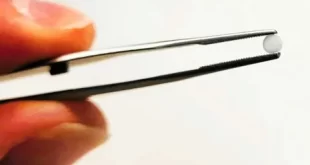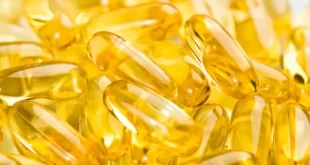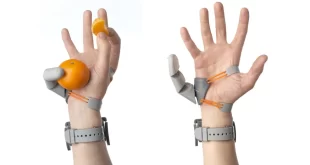Umeå University is one of Sweden’s largest institutions of higher education with over 35,000 students and 4,200 faculty and staff. We are characterised by world-leading research in several scientific fields and a multitude of educations ranked highly in international comparison. Recent breakthroughs at Umeå University include deciphering the molecular mechanisms of the bacterial CRISPR-Cas9 system and its repurposing into a tool for genome editing, a method developed at Umeå University that was awarded the 2020 Nobel Prize in Chemistry.
The host labs are located within the cross-disciplinary Chemical Biological Centre (https://www.umu.se/en/kbc, video: https://vimeo.com/88655847) at Umeå University and are affiliated with two national Centres of Excellence – Umeå Centre for Microbial Research (UCMR) (https://www.umu.se/en/ucmr/) and Umeå Plant Science Centre (UPSC) (https://www.upsc.se/). The labs are fully equipped for biological and chemical research with access to excellent facilities and state-of-art equipment and platforms in a creative, inspiring, international and highly interactive environment. Facilities include Protein Expertise Platform, X-ray, proteomics, NMR (850-400 MHz), cryo-EM and Biochemical Imaging Centre (confocal, FLIM, spinning disk, TIRF, STORM).
Project description
To avert the worst impacts of climate change, major countries have set a net-zero target for greenhouse gas emissions, which has necessitated the demand for renewable energy sources to sustain our society. Compared with other renewable energies, biofuel is storable and compatible with the current fossil fuel infrastructures, and it is therefore considered to play a major role in replacement of fossil fuels and mitigation of climate change. The project aims to develop programmable tools using novel chemo-optogenetic systems to rewire metabolic pathways in suitable microorganisms for efficient production of valuable chemicals as well as biofuels from renewable feedstocks. The engineering of metabolic pathways requires precise control over the levels and timing of metabolic enzyme expression. Light-inducible tools can provide spatiotemporal control without requirement of complex media changes. We expect to establish new synthetic biology tools to rewire metabolic pathways based on chemo-optogenetic systems that can switch on and off gene expression or control protein levels with light. We plan to use these tools to increase production of value-added chemical compounds and biofuels as a sustainable energy source.
The Wu lab has developed a set of novel chemogenetic and chemo-optogenetic tools and used them in cell biology research (Angew Chem 2014, 2017, 2018, Nat Chem Biol 2019, Nat Meth 2023).
The Sellstedt lab is focusing on energy production mediated by microorganisms, such as hydrogen from actinobacteria, bioethanol from fungi and biodiesel from algae (Nature 2002, Bioenerg Res 2012, Biotech Biofuel 2020).
The project will combine expertise from both labs using a combination of techniques such as molecular cloning, genetic engineering, biochemistry, microbial fermentation, cell imaging and analytical techniques.
The project is interdisciplinary with strong collaborations across scientific disciplines. The 2-year fellowship (672 000 SEK) is tax-exempt with start as soon as possible.
Qualifications
To qualify as a postdoctoral fellowship holder, the postdoctoral fellow is required to have completed a doctoral degree or a foreign degree deemed equivalent to a doctoral degree in biochemistry, molecular biology, microbiology, bioengineering, synthetic biology or in another relevant field. This qualification requirement must be fulfilled no later than at the time of the decision about fellowship recipient, but we welcome applications from candidates who are in the process of obtaining their doctoral degree.
Preference should be given to applicants who received their degree no more than three years before the end of the application period. Applicants who received their doctoral degree earlier may be considered in special circumstances. Special circumstances include absence due to illness, parental leave, clinical practice, elected positions in trade unions, or similar circumstances.
The successful candidate is expected to independently further their own studies but also be in close collaboration with other members of the team. Independence and good ability to collaborate are, therefore, requirements. Good command of written and spoken English is also a requirement.
Experiences in molecular cloning, genetic engineering, synthetic biology, and microbial engineering are strong merits, as is a good record of research publication.
Application
The application should include:
- A Curriculum Vitae
- A motivation letter including research interests, qualifications, and motivation for applying (max 2,000 characters with space)
- A publication list including both published papers and preprints with web/DOI
- Names and contact details of at least two references
- A verified copy of doctoral degree certificate or documentation that attests when the doctoral degree is expected to be obtained
- Other documents that the applicant wishes to claim.
Submit your application as a single PDF marked with the “WS Postdoc application” in the subject field of the email, to yaowen.wu@umu.se and anita.sellstedt@umu.se. Application deadline is 8 Oct 2023.
For more information, please contact
Prof. Yaowen Wu, Department of Chemistry, https://www.umu.se/en/research/groups/yaowen-wu/
Prof. Anita Sellstedt, Department of Plant Physiology, Umeå University, https://www.upsc.se/researchers/5967-sellstedt-anita-energy-production-by-microorganisms.html
More about the research environment
At Umeå University, everything is nearby. Our cohesive campus environment makes it easy to meet, collaborate and exchange knowledge, which promotes a dynamic and open culture where we rejoice in each other’s successes. If you are interested in knowing about Umeå University as a workplace, read more at: https://www.umu.se/en/work-with-us/.
Umeå University also offers a strong postdoc community with the Umeå Postdoc Society (UPS), which fosters networking amongst postdocs, organises social and career development events and works towards improving the postdoc experience at Umeå campus. Check out their website: https://umeapostdocsociety.se/, and do not hesitate to contact them early on!
Caractéristiques de l'emploi
| Catégorie emploi | Stage et Formation |
 Etudes Non Stop Etudes Non Stop
Etudes Non Stop Etudes Non Stop



